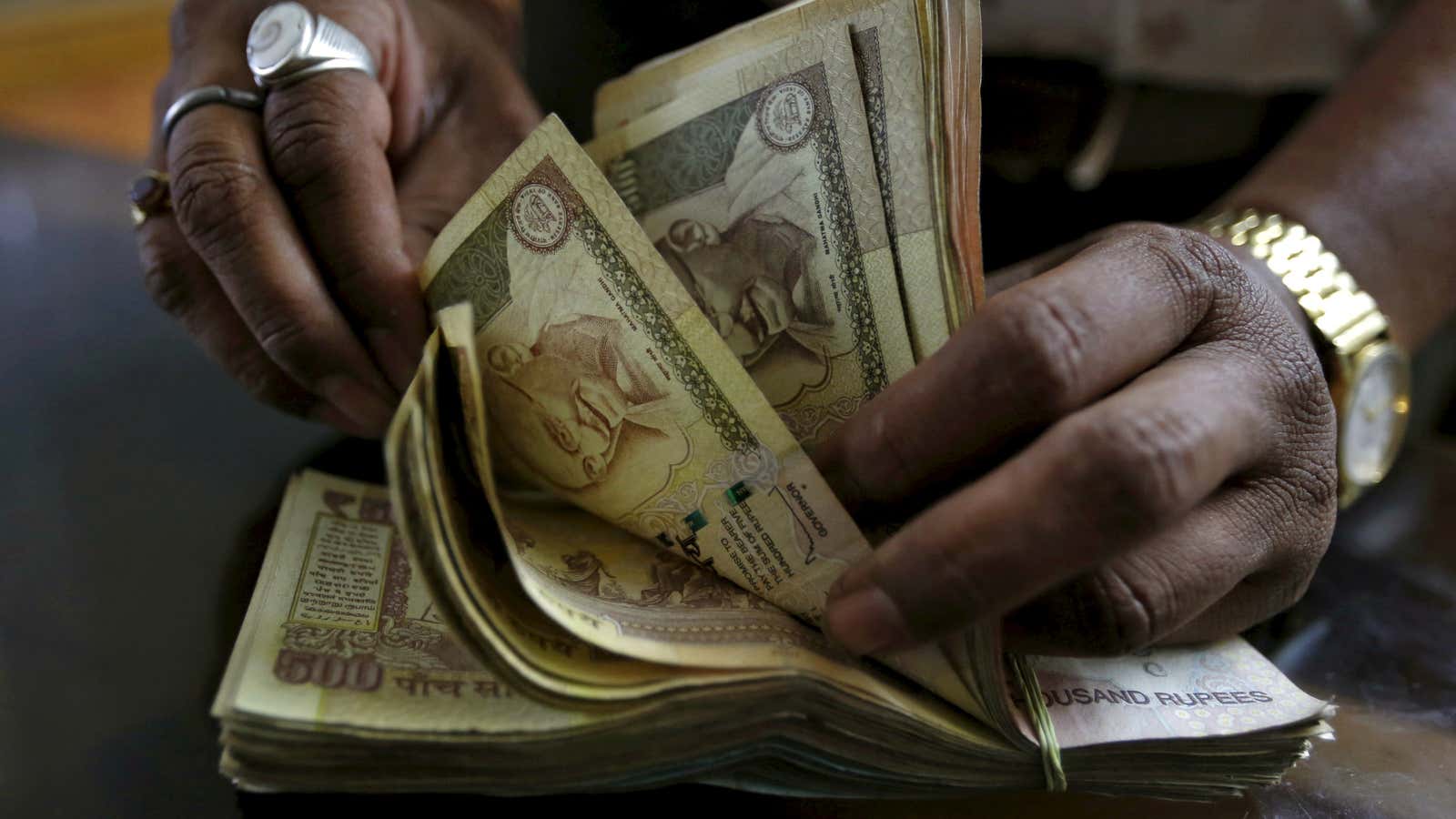India has decided to end the use of Rs500 and Rs1,000 currency notes from Nov. 09.
During a televised address late today (Nov. 08), prime minister Narendra Modi said that the drastic measure was taken to curb the flow of black money and prevent the counterfeiting of notes in Asia’s third-largest economy.
The government will issue new Rs500 and Rs2,000 denomination notes.
Account holders can deposit Rs500 and Rs1000 notes in banks and post offices over the next 50 days with proof of identification such as a PAN card or an Aadhaar card. ATMs in India won’t operate on Nov. 09 and Nov. 10 to facilitate the replacement process. Banks will also remain closed to the public on Nov. 09.
This is, so far, the biggest move made by the Modi government to stop the circulation of illegal currency in the country, which was part of the Bharatiya Janata Party’s poll manifesto in 2014. Earlier in his term, Modi had opened up an amnesty scheme, allowing people to declare their illegal wealth by Sept. 30 2016, in order to avoid legal action. By Oct. 01, only some Rs65,250 crore worth of black money was declared under this scheme.
The prime minister also emphasised on Nov. 08 that the sudden move will impact the financing of terrorist activities in India, which often uses counterfeit notes and black money channels.
“The Rs500 and Rs1000 notes hoarded by anti-national, antisocial elements will become worthless piece of paper,” Modi said. He added, for the benefit of the public, “There is no need for panic. Your money will remain yours.”
Currently India’s black money economy is about 20% of its GDP, according to estimates from Ambit Research. Apart from cash, Indians also hoard wealth worth over billions of dollars in the form of gold.
